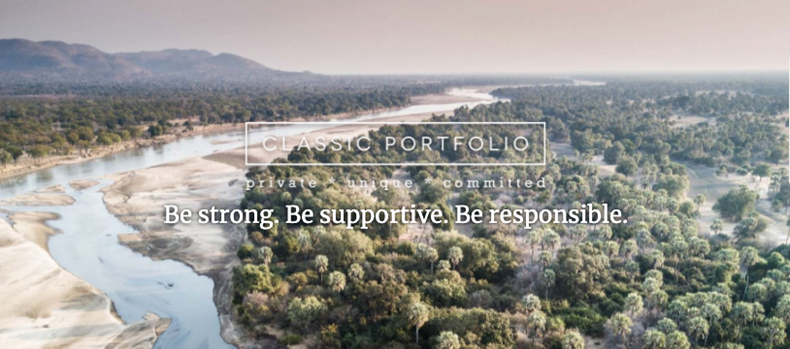[COVID COMMENT] Navigating A Way Forward Together
Pain. Remain. Gain
Taking time to reflect on what we should leave behind, hold onto and create more of in our African tourism industry post COVID-19 and the global economic crisis.
The past few weeks have rattled us all to the core and challenged us both personally and professionally. Every day we face a new unexpected turn of events.
Quite frankly we have ask ourselves what next? And while there has been endless talk and social media comment about how we should use this as a 'reset', I am beginning to wonder what this could look like for our African tourism industry.
Tourism does amazing things for Africa. Through offering life changing experiences for travellers, we inspire, we educate, we engage, and we empower people and communities; we conserve, we protect, and we rehabilitate wildlife and wilderness areas.
While we need tourism to thrive in the future, we should also acknowledge that our industry is not perfect. To survive we have to adapt and be agile.
To start us all thinking I am posing 12 points on the PAIN we should challenge, what is working and should REMAIN, and what we stand to GAIN through a reset.
Pain
We should all acknowledge that now is the time for a reset, and we have to be brave. We need to take bold steps and truly look at what has been putting our industry under pressure, be wise enough to acknowledge these, and brave enough to make the changes.
- The timescale of setting rates 18+ months in advance, is a static approach in a dynamic and unpredictable world. Should we not move from static to dynamic rates that are more responsive to market demands?
- What does #allinthistogether mean beyond COVID? How do we inspire participation around conservation and community initiatives to ensure a shared responsibility by all African tourism stakeholders?
- Often times, with multiple travel partners between the client and the product, we are over pricing ourselves. In a highly competitive global travel market can Africa sustain this model? Is it time to reconsider our booking channel structures?
- Excluding trade shows and visits across Africa, our sales team did over 200 days of agent meetings and over 100 flights in 2019. As eco-conscious companies should we scale down business travel and instead fully embrace online platforms (which we are now all becoming such experts at) for product training and updates?
Remain
We believe the value of the travel specialist in curating and crafting exceptional safaris remains extremely relevant, as is the voice of conservation and the commitment to protecting wild places.
- How do we grow our tourism footprint across Africa through developing sustainable tourism in pioneering locations (yes that means off-the-beaten-path and possibly not what the client asked for), and get support from our trade partners to include these experiences into itineraries?
- The Classic Portfolio website is an essential resource for trade partners, what more can we do to make this an even better resource to support your itinerary planning?
- First hand experience is always best, during a period of travel restrictions and the postponement of our Sustainable Africa MegaFam, what can we do to support the confidence you would gain through educational stays?
- For an industry that is so highly connected, we believe trade shows remain essential, in the absence of Indaba (at this stage unsure about We Are Africa) is there any alternative engagement we could consider?
Gain
This is the most exciting area of consideration for us as partners in the African tourism industry. What does our future look like and what should we be working towards?
- How do we embrace technology to grow the African tourism footprint with our trade partners as well as safari lodges building a direct consumer channel.
- Would itemised billing showing cost of lodges/camps/hotels, park and conservation fees, transport costs, and agent service fees explain the value proposition of each component in an itinerary?
- When, where and how should deposits due to hotels and lodges be paid and would a more streamlined policy across the industry be easier to manage going forward?
- As we move into a time of conscious decision making, how can we support travellers and trade partners to make more responsible choices around the destinations and products they decide to support?
While the travel industry has been the hardest hit through COVID-19 and we still have a very uncertain path ahead, let us not waste this crisis. Let us be brave and collaborate to make the necessary changes for a sustainable future. As we move away from being consumptive consumers to experience seekers, exploring through travel will be more relevant than ever before.
This is not an easy journey, and while Classic Portfolio navigates our reset, we remain more committed to our exceptional members, our trade partners, and the future of tourism in Africa.

